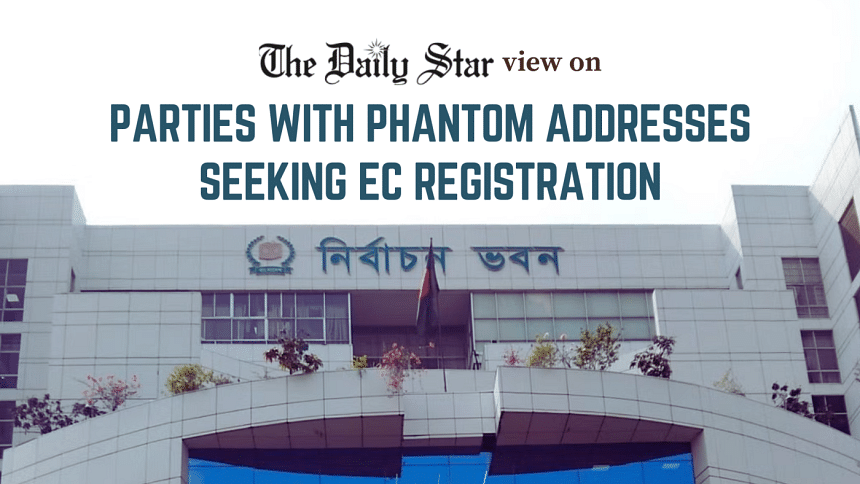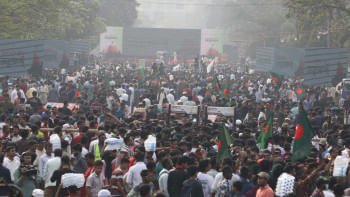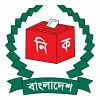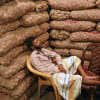We must be careful in granting legitimacy to name-only parties

We're concerned about the ongoing trend of political parties mushrooming across the country, many of which appear to exist on paper only. While this is nothing new—with elections under the now-ousted Awami League regime similarly attracting many parties of dubious nature, some of which even secured registration for election—what we're witnessing now under the new dispensation only reinforces the need for proper verification by the Election Commission (EC).
Currently, a total of 50 parties are registered with the EC and, according to a report by this daily, 147 more parties applied for registration between March 10 and June 22. Our correspondents have recently visited the addresses of 13 applicants in Dhaka's Paltan area. Strikingly, nine were found to have no central offices or even signboards at those locations, while the remaining four were found huddled on the rooftop of a 15-storey building, sharing addresses in a dubious arrangement. What does this say about the motives of these organisations?
The Representation of the People Order, 1972 lays out clear criteria for registration: a functional central office and committee, offices in at least one-third of the districts or 100 upazilas, proof of at least 200 enrolled voters per office, etc. Although the Election Reform Commission formed after the 2024 uprising recommended relaxing some of the conditions, any changes have yet to be approved, meaning that the EC issued its call for applications based on the existing rules. However, these requirements, even in their current form, are not arbitrary—they are meant to ensure that political parties are rooted in the electorate and capable of sustained political activities. It is vital that the EC strictly enforces these rules before granting party registration and symbols.
In the past, we've seen how paper-only parties with no real political base have disrupted electoral environments or become tools for ulterior motives. As experts have observed, many such parties do not even bother contesting elections seriously and seem to exist primarily for financial gains or political leverages. Some vanish after their launch, while others linger around waiting for opportunities. Worse still, too many parties today see politics as an electoral project only, reappearing briefly every five years with grand declarations. But politics is not just about elections. It's about consistent public engagement, ideology-driven activism, and building institutions that outlast individual leaders.
That is why the RPO's provisions around inter-party democracy—elected committees, gender representation, and structural transparency—should be taken seriously. These and other requirements, if enforced properly, can help build a democratic culture in the country. A party that cannot uphold democracy within cannot be expected to champion it for others. Thanks to the sacrifices made during the July uprising, we now have a rare opportunity to reset how politics is practiced. Both established and newly emerging parties, therefore, must prove themselves worthy of the role they seek.

 For all latest news, follow The Daily Star's Google News channel.
For all latest news, follow The Daily Star's Google News channel. 











Comments